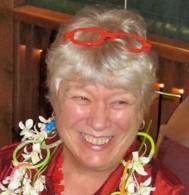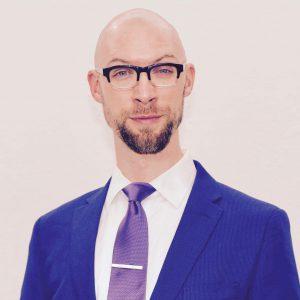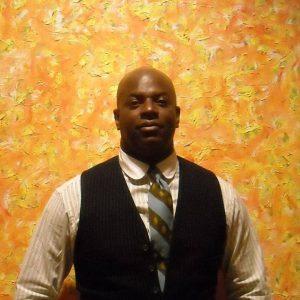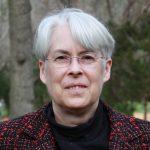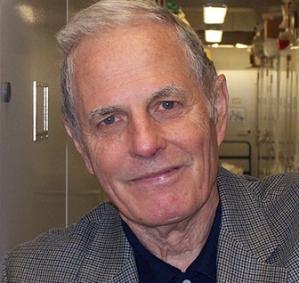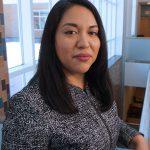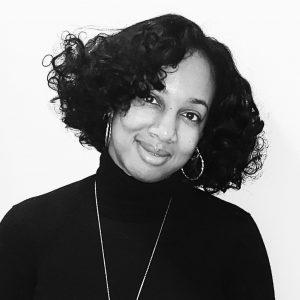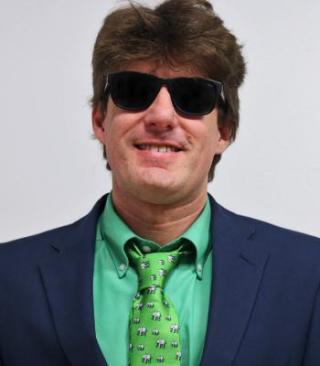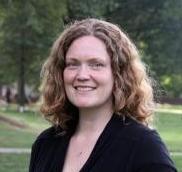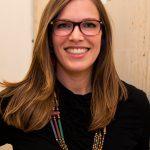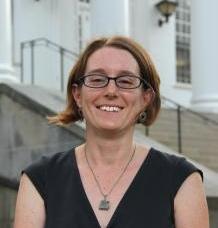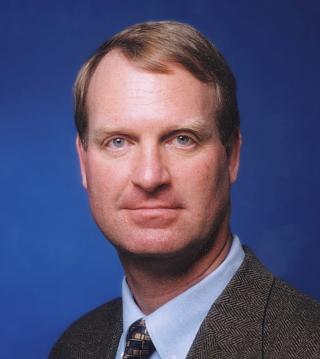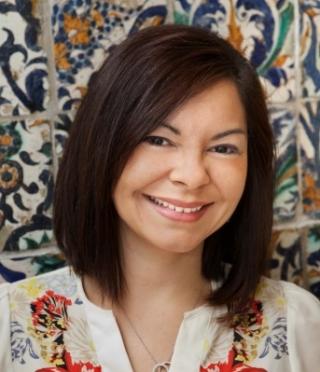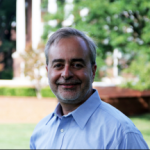MSMCC Advisors & Committee Members
To pursue the MSMCC graduate certificate, students will need to choose an advisor from the list below.
Advisors will help you plan how you will complete the certificate, choose your elective for the program and work with you to develop your practicum. If your M.A. or Ph.D. is in one of the departments listed below, please select an advisor from your department. If your M.A. or Ph.D. is not in one of the departments listed below, the MSMC director can act as your advisor.
Program Advisors
American Studies
Dr. Mary Corbin Sies
Dr. Mary Corbin Sies is an associate professor of American studies and an affiliate faculty member in the Department of Women’s, Gender, and Sexuality Studies, the Historic Preservation program and the Consortium on Race, Gender & Ethnicity. She received her Ph.D. in American culture from the University of Michigan in 1987. Her research and teaching interests span material and visual culture, planning history, architectural history, urban/suburban history and cultural and social history of the U.S. in the 19th and 20th centuries. Her most recent edited book (with Isabelle Gournay and Robert Freestone), “Iconic Planned Communities and the Challenge of Change” (University of Pennsylvania, 2019), was awarded the best-edited work in planning history by the International Planning History Society in 2020. One of the four founding members of the Museum Scholarship and Material Culture graduate certificate program, Sies previously directed the program from 2006 until 2013. She has consulted on museum exhibitions for the Margaret Strong Museum, the National Building Museum and the Bass Museum in Miami Beach. Locally, she volunteers with the Greenbelt Museum and the Lakeland Community Heritage Project, where she is part of the Lakeland Digital Archive team, a community/university collaboration pioneering an equitable and community-driven digital heritage project. She is an avid museum-goer with a special appreciation for community museums and local heritage societies around the world.
Dr. Perla Guerrero
Perla M. Guerrero is associate professor of American studies and U.S. Latina/o studies at the University of Maryland, College Park. Her research and teaching interests include relational race and ethnicity with a focus on Latinxs and Asian Americans, space and place, immigration and legality, labor and U.S. and Mexican history. Her first book, “Nuevo South: Latina/os, Asians, and Remaking of Place,” examines how racial cleansing and sundown towns made northwest Arkansas into a particular kind of place and analyzes the political and economic factors that are shifting social conditions and racial mores. She’s currently working on her second book, “Deportation’s Aftermath: Displacement and Making a Life in Exile,” which seeks to understand what happens to different kinds of people after repatriation and the ways in which U.S.-based inequality is reproduced in Mexico.
Anthropology
Dr. Mary Corbin Sies in Spring 2021
Dr. Paul Shackel from Fall 2021
Dr. Paul Shackel joined the Department of Anthropology in 1996 after working for the National Park Service for seven-and-a-half years. He received his Ph.D. from the State University of New York at Buffalo in 1987.
His extensive work at Harpers Ferry delves into issues of class and labor in this early industrial town. He received a three-year NSF Research Experiences for Undergraduates award that allowed him to partner with other institutions to train undergraduates in archaeology and explore issues of race, class and ethnicity on the Illinois western frontier. The work focused on the historic town of New Philadelphia, Illinois. The development of civic engagement activities became an important part of this archaeological program. He is now working with graduate and undergraduate students on the Anthracite Heritage Project, a program that includes oral histories, documentary research and archaeology in the anthracite region of Pennsylvania.
History
Dr. Elsa Barkley Brown
Professor Barkley Brown joined the Department in 1997. She holds a joint appointment with the Departments of History and Women, Gender & Sexuality Studies and is an affiliate faculty in African American studies and American studies. Barkley Brown is co-editor of the two-volume “Major Problems in African-American History” (2000) and the two-volume “Black Women in America: An Historical Encyclopedia” (1993). Her articles have appeared in Signs, Feminist Studies, History Workshop, Sage, Public Culture and The Journal of Urban History. She has twice been awarded the Letitia Woods Brown Memorial Publication Prize for best article in African American women’s history. She has also won the A. Elizabeth Taylor Prize for best article in southern women’s history, the Martin Luther King, Jr. Prize for best article in African American history and the Anna Julia Cooper Award for Distinguished Scholarship in Black Women’s Studies. Barkley Brown has held fellowships from the W.E.B. DuBois Institute, Harvard University and The American Philosophical Society. A past president of the Southern Association for Women Historians, Barkley Brown currently serves on the editorial board of Women and U.S. Social Movements, 1600-2000.
i-School
Dr. Paul Jaeger
Paul T. Jaeger, Ph.D., J.D., is professor, diversity officer and director of the Master of Library Science (MLS) program of the College of Information Studies and co-director of the Information Policy and Access Center (iPAC) at the University of Maryland. His teaching and research focus on the ways in which law and public policy shape information behavior, with a specific focus on issues of human rights and social justice. He is the author of more than 150 journal articles and book chapters, as well as more than a dozen books. His research has been funded by the Institute of Museum and Library Services, the National Science Foundation, the American Library Association, the Smithsonian Institution and the Bill and Melinda Gates Foundation, among others. Jaeger is editor of Library Quarterly and co-editor of Advances in Librarianship and the International Journal of Information, Diversity, & Inclusion. He is also founder and chair of the Conference on Inclusion and Diversity in Library and Information Science (CIDLIS). In 2014, he received the Library Journal/ALISE Excellence in Education Award, the international educator of the year award for the field of library and information science.
Dr. Diana Marsh
Diana Marsh is an assistant professor of archives and digital curation in the College of Information Studies (iSchool). Her work focuses on how changing technologies, cultures and values affect the communication of knowledge in heritage institutions. Her current research focuses on access to anthropological archives and the circulation of digitized ethnographic collections in Native communities.
She was previously a postdoctoral fellow at the Smithsonian’s National Anthropological Archives (NAA). From 2015–17, she was an Andrew W. Mellon Postdoctoral Curatorial Fellow at the American Philosophical Society where she curated exhibitions drawing primarily on archival collections (“Curious Revolutionaries: The Peales of Philadelphia,” from April–December 2017 and “Gathering Voices: Thomas Jefferson and Native America,” from April–December 2016). In 2014–15, she was a postdoctoral research and teaching fellow in museum anthropology at the University of British Columbia (UBC) where she taught courses in museology and heritage. She completed her Ph.D. in anthropology at UBC, where she conducted an ethnography of exhibition planning and the renovation of the National Museum of Natural History’s fossil hall. She has an M.Phil. in social anthropology with a museums and heritage focus from the University of Cambridge and a B.F.A. in visual arts and photography from the Mason Gross School of the Arts at Rutgers University. Her work has been published in the Journal of Material Culture, Museum Anthropology, Practicing Anthropology, Archivaria and Archival Science. Her book, “Extinct Monsters to Deep Time: Conflict, Compromise, and the Making of Smithsonian’s Fossil Halls,” was recently published with Berghahn Books Museum and Collections Series.
Other
Dr. Mary Corbin Sies
Committee Members
Morgan Adle
Morgan Adle currently manages the Master of Library and Information Science (MLIS) Program and is a PhD Student in the College of Information Studies . She has a BA in English Literature and a Master of Library Science from the University of Maryland. Before returning to UMD as the MLIS Program Manager, she taught K-6 ESL and then became a lecturer at Chonnam National University in South Korea. She also has experience working in records management, special collections, and archives. Her research interests include information literacy, search literacy, library and information science (LIS) curriculum, and instructional design.
Dr. Mary Jo Arnoldi
Dr. Mary Jo Arnoldi is the Curator of African Ethnology and Art in the Department of Anthropology at the National Museum of Natural History, Smithsonian Institution. She received her Ph.D. from Indiana University in 1983 in African Art History. She has been conducting research in Africa since 1978 with an emphasis on African arts and material culture. She has published extensively on African performing arts, youth, public culture, and post-colonial nationalism. She has also published on the museum’s historic Central African collections and on the history of the representation of Africa at the Smithsonian. Dr. Arnoldi has curated exhibitions at the Smithsonian Institution and at several other museums. She was a lead curator for NMNH’s permanent exhibition, African Voices, which opened in late 1999. In 2003 she co-curated the Mali Program, From Timbuktu to Washington, at the Smithsonian Folklife Festival in Washington, DC that featured 150 Malian artisans and musicians during a two-week festival on the National Mall. In 2013 she curated an exhibition, Mud Masons of Mali, at the National Museum of Natural History.
Drew Barker
Drew Barker is the Performing Arts Librarian at the UMD Michelle Smith Performing Arts Library. He is the subject librarian for Theatre, Dance, & Performance Studies. Curator of the exhibit “The Triumph of Isabella: Exploring Performance Through Art” (2018-2019). Dramaturgy experience at UMD’s Fearless New Play Festivals, Center Stage (MD), Theatre J (DC), and Triad Stage (NC). His research interests include the playwright Naomi Wallace, information design, information literacy, and the American Civil War. He earned his MA & MLS from the University of Maryland, College Park. www.drewbarker.info
Ann Bennett
Ann Bennett has more than 20 years’ experience working in archaeology, museums, and education. She is very active in local and regional historical and cultural organizations and is the past-president of the Archaeological Society of the Northern Chesapeake. Mrs. Bennett currently works as the Executive Director of the Laurel Historical Society in Laurel, Maryland, and is an adjunct professor in anthropology and sociology at Cecil College. She serves on the Small Museums Administrators Committee for the American Alliance of Museums and the Small Museums Committee for the American Association for State and Local History.
Benjamin Blake
As the Labor Collections Archivist, I assist union members and officers, students, teachers, professors and the general public in using our unique historical documents, photographs, audiovisual material and artifacts for their research. To that end, I have overall responsibility for managing and describing over 20,000 feet of material, including the historical international records of the AFL-CIO, the Carpenters and Bakers unions. I also have responsibility for acquiring new collections and providing records management consultation services. I hold a BA in labor economics, Hampshire College, MA in labor history, Cleveland State University, and MLIS in labor archives, University of Pittsburgh.
Dr. Aleia M. Brown
Dr. Aleia M. Brown serves as the Assistant Director of the African American History, Culture, and Digital Humanities (AADHum) Initiative. She was the recipient of the 2017-2019 Mellon-ACLS public fellowship, working as program manager at the Humanities Action Lab. There she launched the multi-media installation Climates of Inequality: Stories of Environmental Justice. As Curator of African American History and Culture at the Michigan State University Museum she worked with the Desmond & Leah Tutu Legacy Foundation in Cape Town, SA, to co-curate the traveling exhibition Ubuntutu: Life Legacies of Love and Action, and co-author the companion catalog. She is also the co-organizer of #BlkTwitterstorians and #MuseumsRespondtoFerguson. Her current manuscript in progress illuminates the sophisticated ways that makers have visualized Black political thought. Brown holds a Ph.D. in Public History from Middle Tennessee State University.
Dr. Aaron Bryant
Aaron Bryant is a curator at the National Museum of African American History and Culture. Prior to the Smithsonian, he curated the collections at Morgan State University’s James E. Lewis Museum of Art. Bryant has lectured at Harvard, Johns Hopkins, Duke, the Metropolitan Museum, Cambridge, Oxford, and the British Museum. Additionally, he traveled with the State Department to present lectures throughout Spain. He has received honors from the Lyndon Johnson Presidential Library, the New York Public Library, the Maryland Historical Society, the University of Maryland, the Smithsonian Institution, the American Association of Museums, and the Organization of American Historians and Immigration and Ethnic History Society. Additionally, Bryant received honors from Congress, the Justice Department, and the Royal Anthropological Institute, UK. Bryant chairs Baltimore City’s Public Arts Commission and serves on the city’s Commission on Historical and Architectural Preservation.
Dr. Mary Corbin Sies
Dr. Mary Corbin Sies is an Associate Professor of American Studies and an affiliate faculty member in the Department of Women’s Studies, the Historic Preservation program, and the Consortium on Race, Gender & Ethnicity. She received her Ph.D. in American Culture from the University of Michigan in 1987. Her research and teaching interests span material and visual culture, planning history, architectural history, urban/suburban history, and cultural and social history of the U.S. in the 19th and 20th centuries. Her most recent edited book (with Isabelle Gournay and Robert Freestone), Iconic Planned Communities and the Challenge of Change (University of Pennsylvania, 2019) was awarded the best-edited work in planning history by the International Planning History Society in 2020. One of the four founding members of the Museum Scholarship and Material Culture graduate certificate program, Dr. Sies previously directed the program from 2006 until 2013. She has consulted on museum exhibitions for the Margaret Strong Museum, the National Building Museum, and the Bass Museum in Miami Beach. Locally, she volunteers with the Greenbelt Museum and the Lakeland Community Heritage Project, where she is part of the Lakeland Digital Archive team, a community/university collaboration pioneering an equitable and community-driven digital heritage project. She is an avid museum-goer with a special appreciation for community museums and local heritage societies around the world.
Omar Eaton-Martinez
Omar leads Prince George’s County Historical Resources which include historical house museums, an aviation museum, the Black History Program, and archaeological parks. He oversees the programming of those sites with an emphasis placed on preserving, sustaining, and enhancing these resources as well as engaging and building communities through education, outreach, and innovation. He has recently worked at the Smithsonian’s National Museum of American History, National Park Service, the Office of the National Museum of the American Latino Commission, NASA, and he also was a K-12 teacher in NYC and DC.
He has had leading roles in racial equity organizations like Museums and Race: Transformation and Justice, Museum Hue as well as a part of the Museum as Site for Social Action project. His research interests are Afro Latinx identity in museum exhibitions, Diversity and Inclusion in museums and cultural institutions; and Hip Hop history, culture, and education. Moreover, he has supported public history projects centering blackness in Puerto Rico.
Dr. Bernard Finn
Dr. Bernard Finn has a bachelor’s degree in Engineering Physics from Cornell and a Ph.D. in History of Science from the University of Wisconsin. He came to the Smithsonian’s Museum of History and Technology (now American History) in 1962 as curator of the electrical collections, converted to “emeritus” after his retirement in 2005. His scholarly works (publications, presentations, exhibits) have dealt with various individuals (Franklin, Edison, Bell, Tesla) and topics (communications satellites, lasers, energy conversion, lighting). He has paid special attention to underwater communications cables.
His interest in the history of museums led him to help persuade the Smithsonian to establish a seminar in museum scholarship jointly with the University of Maryland in 1996 (expanded to a certificate program in 2002). About the same time, he was co-founder – with colleagues at the Science Museum (London) and the Deutsches Museum (Munich) – of an organization, Artefacts, which promotes the use of objects in studies of the history of science and technology and has been the focus of much of his attention in recent years.
Dr. Quint Gregory
Quint Gregory wears many hats at the University of Maryland but spends most of his time in the Michelle Smith Collaboratory for Visual Culture, a space he designed and runs, collaborating with teachers, researchers, and students interested in employing digital technologies to enhance their work, be it pedagogical, academic or rhetorical. He has taught seminars for the Honors College at the University of Maryland that focus on museums and society, inspiration for which he drew from nearly a decade’s worth of work in area museums (National Gallery of Art, Walters Art Gallery) while pursuing his doctorate, a goal only accomplished after his Fulbright-fueled year of research in the Netherlands in 2000-2001.
Quint first came to the University of Maryland as a graduate student focused on seventeenth-century Dutch and Flemish painting (he worked on such exhibitions as Johannes Vermeer, and Jan Steen), a subject for which he retains great passion, even if he does not wade in those waters daily at present.
Dr. Perla Guerrero
Perla M. Guerrero is Associate Professor of American Studies and U.S. Latina/o Studies at the University of Maryland, College Park. Her research and teaching interests include relational race and ethnicity with a focus on Latinxs and Asian Americans, space and place, immigration and legality, labor, U.S. and Mexican history. Her first book, “Nuevo South: Latina/os, Asians, and Remaking of Place”, examines how racial cleansing and sundown towns made northwest Arkansas into a particular kind of place and analyzes the political and economic factors that are shifting social conditions and racial mores. She’s currently working on her second book, “Deportation’s Aftermath: Displacement and Making a Life in Exile”, which seeks to understand what happens to different kinds of people after repatriation and the ways in which U.S.-based inequality is reproduced in Mexico.
Lae’l Hughes Watkins
She is the Founder of Project STAND, the first-of-its-kind collaborative effort among archival repositories within academic institutions across the country to create an online portal, featuring analog and digital collections that document student activism that primarily focus on historically marginalized communities. She is the co-chair of University of Maryland’s Studying Slavery 1856 Project, she is a CO-PI on the collaborative Restorative Justice Project with AADHUM, Lae’l is a 2019 Mover and Shaker and received the 2018 Merit Award by the Society of American Archivists for her leadership in Project STAND. Her 2018 article, ‘Moving Toward a Reparative Archive: A Roadmap for a Holistic Approach to Disrupting Homogenous Histories in Academic Repositories and Creating Inclusive Spaces for Marginalized Voices,’ published in the Journal for Contemporary Archival Studies (JCAS), remains one of the most popular pieces.
Dr. Katherine Izsak
Katherine (Kate) oversees the iSchool’s five degree programs and overall curriculum. During Kate’s tenure, the College has generated and maintained a 300% increase in its student body and doubled its academic staff. Kate is applying her broad experience in educational policy and academic administration to the development of new degree programs in innovative areas of information science, including information design, social data science, gaming and media analytics, data journalism, library leadership, and smart and connected communities. Kate also teaches in the College and holds a faculty affiliation with the UMD Department of Anthropology. Her teaching and research interests focus on the study of disasters and community resilience, and she has further teaching interests in pedagogy and instructional design.
Prior to joining the UMD iSchool, Kate served as UMD’s Undergraduate and Graduate Director for Terrorism Studies and as the Education Director for UMD’s National Consortium for the Study of Terrorism and Responses to Terrorism. She has also held positions with UMD’s College of Behavioral and Social Sciences and Center for the Advanced Study of Language (CASL). She has over 15 years of experience in teaching and research in interdisciplinary social sciences.
Dr. Paul T. Jaeger
Paul T. Jaeger, Ph.D., J.D., is Professor, Diversity Officer, and Director of the Master of Library Science (MLS) program of the College of Information Studies and Co-Director of the Information Policy and Access Center (iPAC) at the University of Maryland. His teaching and research focus on the ways in which law and public policy shape information behavior, with a specific focus on issues of human rights and social justice. He is the author of more than one hundred and fifty journal articles and book chapters, as well as more than a dozen books. His research has been funded by the Institute of Museum and Library Services, the National Science Foundation, the American Library Association, the Smithsonian Institution, and the Bill and Melinda Gates Foundation, among other. Dr. Jaeger is Editor of Library Quarterly and Co-Editor of Advances in Librarianship and the International Journal of Information, Diversity, & Inclusion. He is also founder and chair of the Conference on Inclusion and Diversity in Library and Information Science (CIDLIS). In 2014, he received the Library Journal/ALISE Excellence in Education Award, the international educator of the year award for the field of library and information science.
Dr. Kathryn Lafrenz Samuels
Kathryn Lafrenz Samuels is Assistant Professor in the Department of Anthropology, with expertise in cultural heritage, environmental anthropology, and political anthropology. Dr. Lafrenz Samuels’ research highlights the growth of heritage practice in the transnational sphere: in the domains of international development, global climate change, human rights, democracy building, transnational advocacy networks, and corporate social responsibility. Her work showcases the persuasive power of cultural heritage, as a social field of public rhetoric for mobilizing change. She received her Ph.D. in Anthropology from Stanford University.
Diana Marsh
Diana Marsh is an Assistant Professor of Archives and Digital Curation in the College of Information Studies (iSchool). Her work focuses on how changing technologies, cultures, and values affect the communication of knowledge in heritage institutions. Her current research focuses on access to anthropological archives and the circulation of digitized ethnographic collections in Native communities.
She was previously a Postdoctoral Fellow at the Smithsonian’s National Anthropological Archives (NAA). From 2015–2017, she was an Andrew W. Mellon Post-Doctoral Curatorial Fellow at the American Philosophical Society where she curated exhibitions drawing primarily on archival collections (Curious Revolutionaries: The Peales of Philadelphia, April–December 2017 and Gathering Voices: Thomas Jefferson and Native America, April–December 2016). In 2014–2015, she was a Postdoctoral Research and Teaching Fellow in Museum Anthropology at the University of British Columbia (UBC) where she taught courses in museology and heritage. She completed her Ph.D. in Anthropology at UBC, where she conducted an ethnography of exhibition planning and the renovation of the National Museum of Natural History’s fossil hall. She has an MPhil in Social Anthropology with a Museums and Heritage focus from the University of Cambridge and a BFA in Visual Arts and Photography from the Mason Gross School of the Arts at Rutgers University. Her work has been published in Journal of Material Culture, Museum Anthropology, Practicing Anthropology, Archivaria, and Archival Science. Her book, Extinct Monsters to Deep Time: Conflict, Compromise, and the Making of Smithsonian’s Fossil Halls, was recently published with Berghahn Books Museum and Collections Series.
Dr. Klaus Ottmann
Klaus Ottmann is Chief Curator and Deputy Director for Academic Affairs at The Phillips Collection in Washington, D.C. and the publisher and editor of Spring Publications. In 2016, Dr. Ottmann was conferred the insignia of chevalier of France’s Order of Arts and Letters by the French ministry of culture and communication.
At the Phillips, he has curated the exhibitions NORDIC IMPRESSIONS: Art from Åland, Denmark, the Faroe Islands, Finland, Greenland, Iceland, Norway, and Sweden, 1821–2018; George Condo: The Way I Think; Arlene Shechet: From Here On Now; Karel Appel: A Gesture of Color; Hiroshi Sugimoto: Conceptual Forms and Mathematical Models; Angels, Demons, and Savages: Pollock, Ossorio, Dubuffet; and Per Kirkeby: Paintings and Sculpture; and oversaw the installation of the Phillips’s new permanent installation, a Wax Room created by Wolfgang Laib. Dr. Ottmann has curated more than 50 international exhibitions, including Jennifer Bartlett: History of the Universe, Works 1970–2011; StillPoints of the Turning World: SITE Santa Fe’s Sixth International Biennial; Life, Love, and Death: The Work of James Lee Byars; Wolfgang Laib: A Retrospective; and Strange Attractors: The Spectacle of Chaos. His publications include Yves Klein by Himself: His Life and Thought; The Genius Decision: The Extraordinary and the Postmodern Condition; and The Essential Mark Rothko. In 2006, he translated and edited Yves Klein’s complete writings, Overcoming the Problematics of Art: The Writings of Yves Klein. In 2010 he edited and translated F.W.J. Schelling’s Philosophy and Religion (1804) and in 2020, he edited and translated Schelling’s Philosophy of Revelation (1842–42) and Related Texts.
Dr. Barnet Pavao-Zuckerman
Dr. Barnet Pavao-Zuckerman is Associate Professor in the Department of Anthropology at the University of Maryland. She received her Ph.D. from the University of Georgia in 2001, completing her dissertation research in the Georgia Museum of Natural History. Prior to arriving at the University of Maryland, she was Associate Curator of Zooarchaeology at the Arizona State Museum for over a decade, as well as Associate Professor and Associate Director of the School of Anthropology at the University of Arizona. She is an archaeologist and is currently conducting research on the colonial-period experiences of Native Americans in southeastern and southwestern North America, looking at the impact of the introduction of domesticated animals and European market economies on indigenous ecological and economic systems.
Dr. Dennis Pogue
Dr. Dennis J. Pogue, has more than 30 years of experience as an archaeologist, museum administrator, educator, and historic preservationist. He is adjunct associate professor in the historic preservation program at the University of Maryland, and he consults on a variety of preservation related topics with museums, historic sites, private individuals, and others. He served for 25 years at George Washington’s Mount Vernon Estate, where he was vice president for preservation. Dr. Pogue’s award-winning book, Founding Spirits: George Washington and the Beginnings of the American Whiskey Industry, grew out of a 10-year effort that he led to research and reconstruct Washington’s whiskey distillery. He received his doctorate in Anthropology from The American University, in Washington, DC.
Dr. Margaret Salazar-Porzio
Dr. Margaret Salazar-Porzio is a Curator of Latina/o History and Culture in the Division of Home and Community Life. She has research interests and expertise in 20th century visual and material culture of the Western United States, Pacific Rim, and Mexico; Race, Citizenship and National Identity in U.S. urban history; family formation and childhood; and K-20 Education. Before joining the Smithsonian’s National Museum of American History, Dr. Salazar-Porzio received her Ph.D. in American Studies and Ethnicity from the University of Southern California in 2010, served as an Associate Research Scholar and Lecturer at the Center for Institutional and Social Change at Columbia University Law School, and held a Smithsonian Institution Latina/o Studies Postdoctoral Fellowship. In addition to receiving research fellowships from the Guggenheim, Rockefeller, and National Science Foundations, she was also a primary education teacher in Los Angeles, California, where she received a local Teacher of the Year award in 2004. Dr. Salazar-Porzio’s research combines these experiences with deep commitments to education, equality, and democratic engagement in the service of her work at the Smithsonian Institution.
Dr. Paul Shackel
Dr. Paul Shackel joined the Department of Anthropology in 1996 after working for the National Park Service for 7-½ years. He received his Ph.D. from the State University of New York at Buffalo in 1987.
His extensive work at Harpers Ferry delves into issues of class and labor in this early industrial town. He received a 3-year NSF Research Experiences for Undergraduates award that allowed him to partner with other institutions to train undergraduates in archaeology and explore issues of race, class and ethnicity on the Illinois western frontier. The work focused on the historic town of New Philadelphia, Illinois. The development of civic engagement activities became an important part of this archaeological program. He is now working with graduate and undergraduate students on the Anthracite Heritage Project, a program that includes oral histories, documentary research, and archaeology in the anthracite region of Pennsylvania.
Dorit Yaron
Since December 2004, Dorit Yaron has served as the Deputy Director of the David C. Driskell Center for the Study of the Visual Arts and Culture of African Americans and the African Diaspora at the University of Maryland, College Park [UMCP]. At the Driskell Center, her role includes curating, managing the Center’s permanent art collection, writing grant proposals, and organizing all the Center’s events. Previously she served as the Assistant Director of the University of Maryland Art Gallery at UMCP.
Yaron graduated with an M.A. from the Department of Art History and Archaeology at UMCP in 2000 after completing her master’s thesis, Robin Holder: What’s Black and White and Red All Over: An African-American, Russian, Jewish, Red Diaper Baby. In 1997, she earned her UMCP’s Dual Baccalaureate in Art History and Archaeology and Studio Art.



